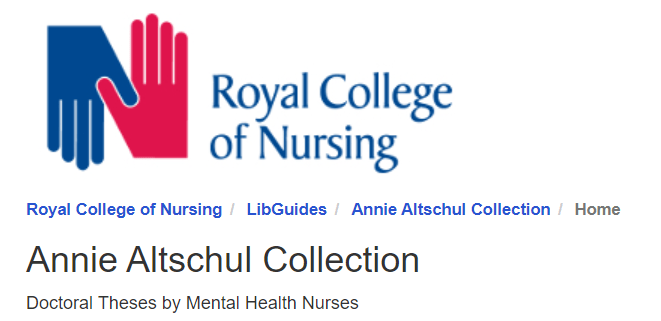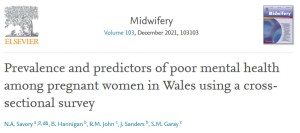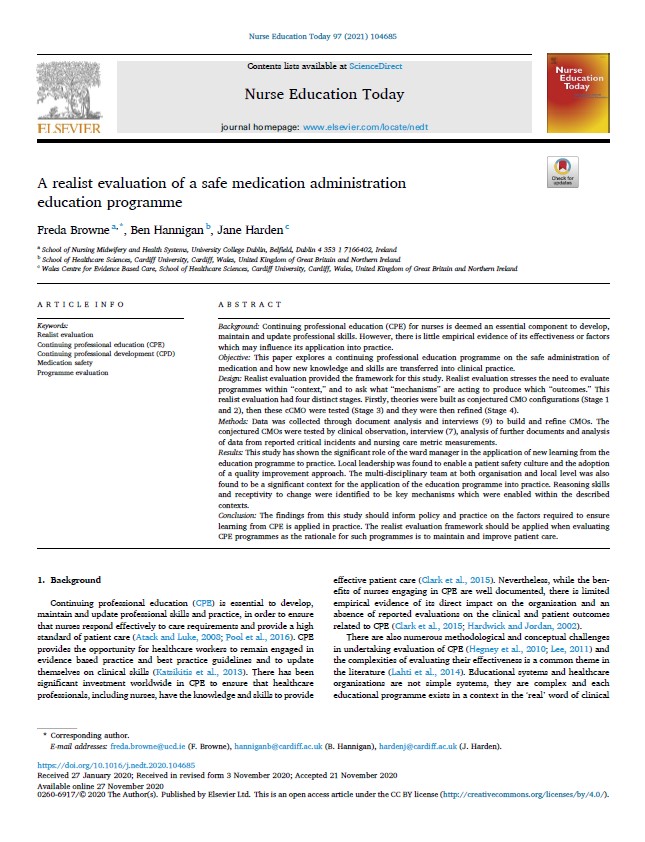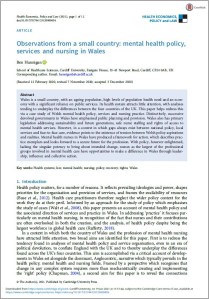 A discussion unfolding at the Mental Health Nurse Academics UK meeting held on March 12th 2021 was how best to support colleagues making the transition from clinical practice into higher education. Given the very limited success within nursing in growing clinical academic careers, through which people might sustainably combine roles in practice with roles in education and/or research, this transition is a very real one. It is also, as Jan Hunter and Mark Hayter observe, relatively neglected.
A discussion unfolding at the Mental Health Nurse Academics UK meeting held on March 12th 2021 was how best to support colleagues making the transition from clinical practice into higher education. Given the very limited success within nursing in growing clinical academic careers, through which people might sustainably combine roles in practice with roles in education and/or research, this transition is a very real one. It is also, as Jan Hunter and Mark Hayter observe, relatively neglected.
The rhythms and demands of clinical practice are very different from those in universities. Most nursing, midwifery and allied health professional academics come to work in higher education without having had prior opportunities to hone their research skills through doctoral-level study. Many need to grow their skills and experiences in teaching, too, but it is on developing early career researchers that I wish to focus in this post. Along the way I draw on experiences of my own to illustrate some wider points.
I was helped to write two doctoral fellowship applications, the second after the first was unsuccessful. In this, I proposed using a set of design and methods crafted in an existing study of recovery from stroke to examine work and roles in the trajectories of people using mental health services in the community. With part-funding from a competitively secured fellowship and then employer support I was on my way. I therefore benefited from a very sensible, strategic, approach to research capacity-building which combined mentorship, help with funding applications, ongoing institutional support, and supervision. Very importantly, I was also encouraged to think programmatically, and to link my research to existing lines of enquiry with the aim of adding to a concentration of substantive, theoretical and methodological expertise.
Sharing my thesis findings through publishing was an absolute given, informed by the view that a study is not completed until it is shared. Beyond this, having concluded my PhD I both wanted, and was encouraged, to develop further the body of research commenced in my thesis. I moved swiftly from doctoral studies to a part-time post-doctoral fellowship, in which I again examined service user trajectories, work and roles but this time in the context of mental health crisis services. I was grateful for the support I received for this project from the Research Capacity Building Collaboration Wales. I also reflect, now, that our collective efforts to grow a doctorally qualified nursing, midwifery and allied health profession academic workforce have not been matched by equal efforts to enable holders of new PhDs to grow their research programmes into the post-doctoral period. It is deeply frustrating to see the holders of new doctorates devoured by teaching and related activities, their research expertise and aspirations risking extinction barely as soon as they have emerged. Mentorship to develop ongoing research plans, space for dissemination and grant-writing, and strategies for networking are so very important in the immediate post-doctoral period.
My view is also that institutional and external support for a PhD brings with it the obligation, in time, to become a PhD supervisor. Debra Jackson, Tamara Power and Kim Usher have recently published findings from a study of doctoral supervision within nursing, accurately pointing to the labour involved in this work and the degree to which it needs to be recognised by employers. Without supervision there can be no doctoral study, and without doctoral study no future research leaders.
Finally, my impressions are that, historically, research careers have tended to begin many years after initial registration and periods in practice. I would like to see more encouragement to newly registered nurses to consider research (and a career in academia) as an option, beginning with early registration for PhD study. Quite possibly this takes me back to where I started in this post, which is to observe that, despite many years of talking and trying, we haven’t yet managed to create coherent career pathways for clinical academics in nursing.








 A discussion unfolding at the
A discussion unfolding at the 
 This new paper has been a long time in the making. Work on it began with preparations for an address given at the
This new paper has been a long time in the making. Work on it began with preparations for an address given at the